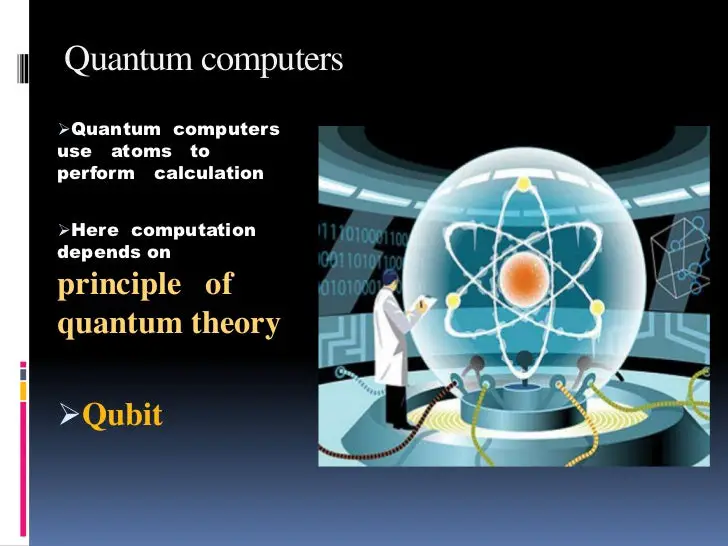Introduction to Quantum Computing for Programmers

Quantum computing is a ground-breaking realm of computer science that leverages the principles of quantum mechanics to process and manipulate data in fundamentally novel ways. This departure from classical computing offers the potential for solving complex problems that have so far stumped conventional computers.

Executive Summary

This comprehensive guide provides an introduction to quantum computing, empowering programmers with a foundational understanding of its concepts, benefits, and practical applications. By exploring the intricacies of qubits, superposition, entanglement, quantum algorithms, and quantum error correction, we lay a roadmap for programmers eager to venture into the quantum computing frontier.
Introduction
Quantum computing, harnessing the power of quantum mechanics, promises to revolutionize the way we approach computing. Departing from the confines of classical computation, it’s poised to confront intricate issues that have long defied traditional methods. To effectively engage with quantum computing’s transformative capabilities, programmers must cultivate a firm grasp of its underlying principles.
Qubits: The Building Blocks of Quantum Computing
-
Superposition: Qubits, the fundamental units of quantum information, possess the enigmatic ability to exist in multiple states simultaneously, unlike classical bits restricted to either 0 or 1.
-
Entanglement: Quantum entanglement entwines two or more qubits such that they become correlated, sharing an inseparable connection that transcends distance.
Quantum Algorithms: Unlocking the Power of Quantum Computation
-
Grover’s Algorithm: A quantum algorithm that outperforms classical counterparts for searching unsorted databases, offering a profound speedup.
-
Shor’s Algorithm: A transformative algorithm capable of factoring large integers exponentially faster than any known classical algorithm, posing a potential threat to widely used encryption protocols.
Quantum Error Correction: Mitigating Quantum Noise
-
Logical Qubits: These virtual qubits are composed of multiple physical qubits, providing resilience against errors inherent in quantum systems.
-
Quantum Codes: Sophisticated mathematical techniques employed to detect and correct errors in quantum computations, ensuring reliable operation.
Conclusion
Quantum computing presents a paradigm shift in the realm of computation, opening up extraordinary possibilities for problem-solving. Programmers who embrace the intricacies of quantum mechanics will find themselves at the forefront of innovation, driving advancements in diverse fields ranging from cryptography to material science. This guide provides a solid foundation for programmers to embark on the exciting journey of quantum computing, empowering them to harness its unprecedented power and transform the future of technology.
Keyword Phrase Tags:
- Quantum Computing
- Quantum Mechanics
- Qubits
- Quantum Algorithms
- Quantum Error Correction

Ths is a very interesting article. I hsva never heard of quantum computing before. I am intrested in learning more.
I am not convinced that quantum computing will ever be of any practical use. It seems like a lot of hype to me.
This article does a good job of explaining the basics of quantum computing. I am familiar with the concepts of superposition and entanglement, but I didn’t know that quantum computers could be used to do so many things.
I disagree with the author’s claim that quantum computing is still in its early stages of development. I think that quantum computing is already mature enough to be used for practical applications.
I love how the author says that quantum computing is still in its early stages of development. It’s been around for decades!
Oh, wow, another article about quantum computing. How original.
I bet quantum computers are so fast that they can calculate the number of hairs on my head in a nanosecond.
I am so excited about the potential of quantum computing. I think that it has the potential to solve some of the world’s biggest problems.
I am not optimistic about the future of quantum computing. I think that it is too complex and expensive to be of any practical use.
I have been working in the field of quantum computing for several years. I can confirm that the concepts of superposition and entanglement are essential to understanding how quantum computers work.
I believe that the author is underestimating the potential of quantum computing. I think that it has the potential to revolutionize many different fields.
I wonder if quantum computers can be used to predict the winning lottery numbers.
I am realistic about the potential of quantum computing. I think that it has the potential to be a powerful tool, but it is important to remember that it is still in its early stages of development.
I am so excited to see what the future holds for quantum computing. I think that it has the potential to change the world.